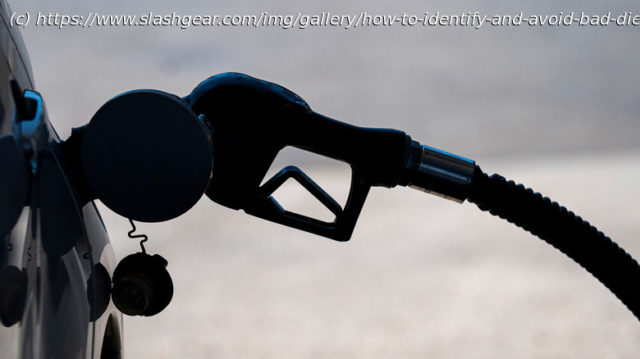Water or other substances in the fuel tank of a gasoline car is one thing, but for diesel engines, the issue can be much worse. Here’s what to do if it happens.
Diesel engines have some major advantages, like increased durability, greater fuel efficiency, and more torque than a gasoline equivalent. Like gasoline and kerosene, the fuel itself is refined from crude oil in most cases. However, there are some downsides, including the fact that fuel contamination can occur.
In a best-case scenario, bad diesel will just make your vehicle run a bit less efficiently. However, many common contaminants will lead to corrosion in your fuel system, damaged pumps, damaged engines, and clogged filters. So it’s important to know how to spot fuel contamination, and deal with it before it ends up damaging your vehicle.
In terms of root causes, water in the tank is one of the most common issues. This can happen because of a missing fuel cap, a leak, or even condensation inside the fuel tank. The latter can happen when a previously warm tank cools, and draws air in from the outside as a result. Humid air hitting the sides of a cold fuel tank can lead to condensation, and in turn can cause contamination.
In addition to the years I’ve spent as an auto writer, I’ve owned, worked around, and driven several diesel-powered vehicles. Here’s a list of some of the reasons why your diesel fuel can go bad, some signs that may indicate you have an issue with your diesel fuel, and information on what you can do should you end up with a tank full of tainted diesel.How does diesel fuel go bad?
Diesel can go bad in a few ways, and a couple of those ways are water-related. First, as with a gasoline car, water in the fuel system isn’t a good thing. If you somehow get water in your fuel tank, then it may sit suspended in the diesel for a while.






